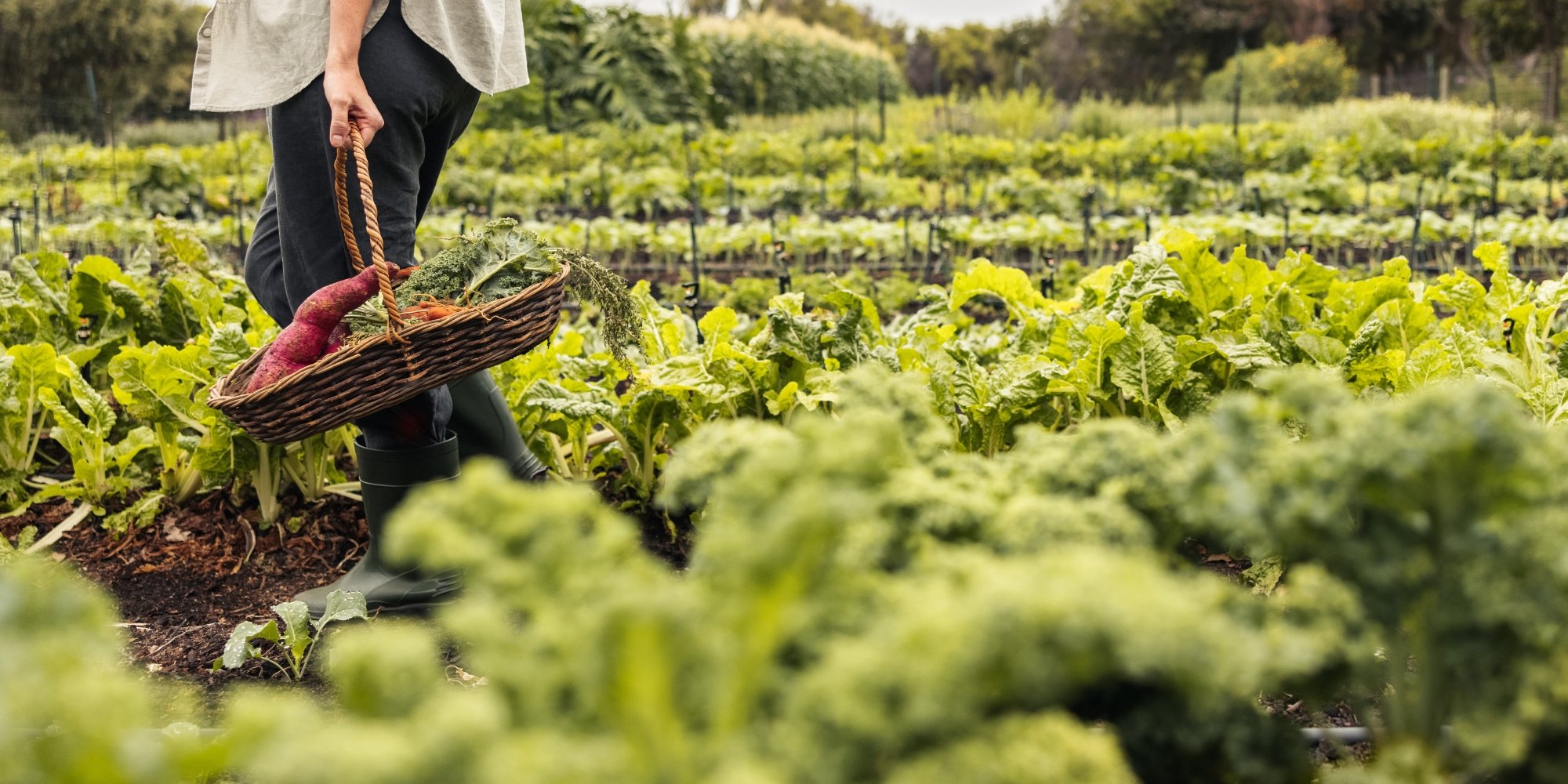Curious about Organic Certification in Australia?
Consider this your guide on everything you need to know about why certification is important, and how to get certified.
What is Organic Certification?
Organic certification in Australia ensures that products meet strict organic farming and processing standards. These standards are based on principles of animal and soil health, environment and ecology, and care, ensuring that certified products are grown and processed without synthetic chemicals or genetically modified organisms (GMOs). Australia's organic certification standards are globally recognised and regulated through both government-accredited and private certification bodies, ensuring the integrity of organic products in domestic and international markets.
Why getting certified is important
Consumers are becoming increasingly aware of certification labels, looking for them on the products they purchase.
Demand for organic certified goods is increasing, in a response to a rise in health conciousness.
Supermarkets are looking for trusted products to meet the increasing consumer demands.
Certification opens up opportunities in premium markets, as well as export opportunities.
Showcases your business’ commitment to sustainable farming practices, improving soil health, biodiversity, and reducing pollution.
Looking to get certified?
Organic Certification: How it works
Achieving organic certification in Australia, for either the domestic or international markets, your business operations must meet the stringent organic guidelines and undergo an initial audit, with recurring annual audits to maintain your certification status.
The organic standards are a set of guidelines that ensure consumers they can trust that your products are being grown in healthy soil, manufactured using organic ingredients, or processed according to organic requirements.
Key requirements for Organic Certification
Soil Quality & Fertilisers:
Soil samples are taken at the initial audit and tested for heavy metal and synthetic chemical residues. Organic farmers must maintain and build healthy soils by using compost, green manures and natural, not synthetic, fertilisers.
Livestock and Animal Welfare
For animal products, organic certification requires humane treatment of livestock. Animals must be raised on organic feed, without synthetic hormones or feed additives, such as Bovaer, and have adequate access to outdoor spaces.
Pest, Disease & Weed Management
Synthetic herbicides, pesticides, insecticides and fungicides are prohibited. Organic primary producers practise good soil health to prevent problems and can only use biological, physical and mechanical methods as tools to manage their systems
Processing, Manufacturing & Allowed Inputs
Processors and manufacturers of allowed inputs and organic products such as cosmetics, processed food, beverages, and textiles must ensure that all raw materials are certified organic and free from prohibited substances such as synthetic chemicals or GMOs. They must maintain clear documentation of their sourcing, production methods, and storage practices to demonstrate compliance with organic standards.
Retailing & Distributing
These businesses must handle organic products in a way that prevents contamination or mixing with non-organic products. Proper labeling, segregation, traceability, and storage practices are essential, along with maintaining accurate records to verify the organic integrity of the products throughout the supply chain.
Exporting & Importing
Exporters and importers of organic products must comply with both Australian organic standards and the standards of the destination country. This often involves obtaining additional certifications, providing export documentation, and adhering to specific labelling and packaging requirements for organic goods in international markets.
Make sure you’re certification ready.
Certification Bodies in Australia
Australia has several certification bodies accredited by the government, each offering services to farmers and processors seeking organic status.
Our process can help you determine the best certification body for your business, farm or operations
The Certification Process
Getting certified as organic in Australia involves a detailed process that our team can guide you through every step of the way, ensuring you’re prepared with the information you need to help make your certification application a success.
Determine the Right Certification Body for You.
Picking the right certification body for your organic farm or business shouldn’t be stressful – our team can help you choose the certification body that’s going to meet your current and future needs.
Submit Your Certification Application.
The process starts with an application submitted to your preferred certification body. Prior to completing your application, our team can review your paperwork, and assesses whether the farm or business is likely to meet organic standards, addressing any potential roadblocks to achieving certification status, before we submit your certification application.
On-site Compliance Audit.
After the application, an inspector from the certification body conducts an on-site audit, reviewing farming and operational practices, inputs and conducting relevant tests, verifying compliance with organic regulations.
Certification Success – or Corrective Actions
Post-audit, you’ll receive notification that your application has been successful, or alternatively if there are corrective actions that need to be taken before certification can be achieved. If you’ve received corrective actions and would like our team to guide you through the process of amending procedures to address these, get in touch about our Corrective Actions Support.
Ongoing Reporting & Record Keeping.
Once certified, it’s important that up-to-date and thorough records are kept. From financial reporting, to maintaining an inputs register and recording any complaints/incidences that may affect your organic status are crucial to ensuring continuity of your certification. When you sign up for our Organic Certification Management & Maintenance program you’ll receive access to digital reporting tools to help streamline your operation and make audit time less stressful.
Annual Auditing
Each year, you’ll undergo an onsite audit to review your operations and ensure you’re adhering to the organic standards on an ongoing basis. Just like with your initial audit, you may receive corrective actions that are required to be addressed before your certification can be renewed. Reach out to us for support and guidance in addressing these issues.

Are you really ready to be certified?
Find out in our ultimate guide to getting organically certified.
Brands we’ve worked with



























